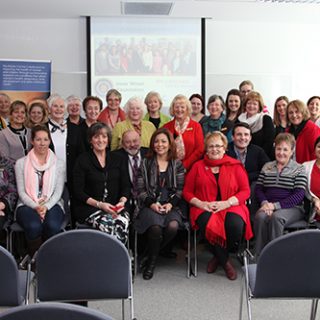51 related news articles for Neurodevelopment and Neuroprotection
-
Extracellular vesicles: A promising frontier in treating preterm brain injury
Despite advances in neonatal care, effective treatments for brain injury in premature babies remain a significant unmet need. Researchers at Hudson Institute of Medical Research, working with the School of Clinical Sciences at Monash Health, are tackling this challenge head-on with an innovative approach: engineered extracellular vesicles.… Read more

-
Too much of a good thing: fine-tuning newborn resuscitation
Latest research at Hudson found that a simple change in how oxygen therapy is given can help protect the babies brain during newborn resuscitation.… Read more
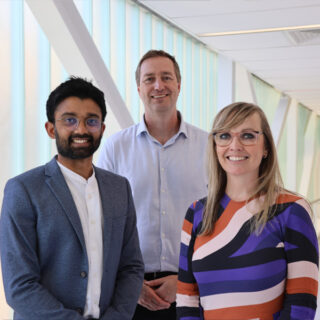
-
Stem Cells: Hope on the horizon for preterm babies
Pioneering Australian research, undertaken by a collaboration of Monash Health’s Monash Children’s Hospital, The School of Clinical Sciences at Monash University, and Hudson Institute of Medical Research, has successfully demonstrated the feasibility and safety of using a baby’s own cord blood-derived cells as a potential treatment for extremely preterm infants.… Read more
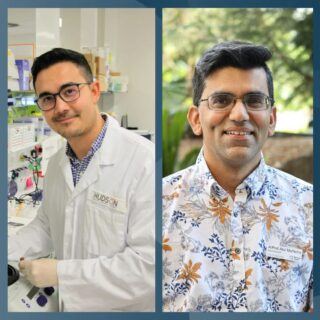
-
NHMRC and ARC Grant success in 2024
Hudson Institute researchers have had some great success in the recent NHMRC Ideas and ARC Discovery Grant rounds.… Read more

-
New treatment hope for perinatal lung and brain injury
Hudson Institute researchers are lifting the lid on a treatment promising the benefits of stem cells but none of the drawbacks, offering potential to reduce the lifelong impacts of perinatal lung and brain injuries.… Read more
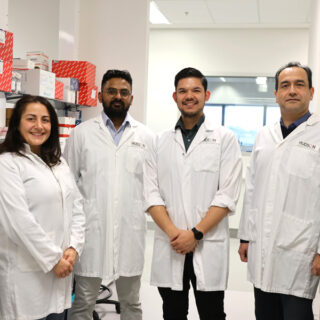
-
What can placentas reveal about pregnancy and beyond?
Dr Emily Camm is now taking a 21st century approach to the placenta’s significance by incorporating Artificial Intelligence (AI)-based analysis to identify the risk of child developmental issues, even before they appear.… Read more
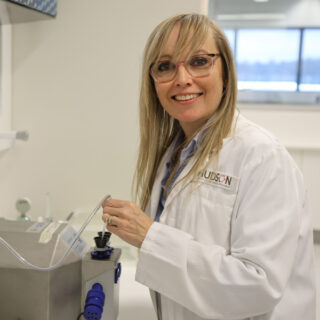
-
Grant to improve understanding of UCB stem cell treatment
Dr Tayla Penny will receive a grant of more than $96,000 from the Cerebral Palsy Alliance to advance her work on improving understanding of umbilical cord blood (UCB) stem cell treatment for perinatal brain injury.… Read more

-
Fostering future science leaders
In 2023 Professor Suzanne Miller was awarded the Monash University, Medicine, Nursing and Health Sciences, Dean’s Award for Excellence – Postgraduate Research Supervision. … Read more
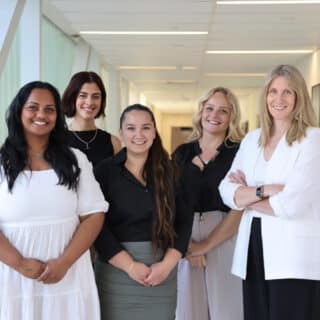
-
World-first cord blood trial helps unborn stroke victims
When unborn babies suffer a stroke, the potential damage can be life-long, so Hudson Institute of Medical Research is aiming to change that using the stem cells found in umbilical cord blood (UCB).… Read more

-
Inner Wheel Foundation: successful science
Collaborations are a vital part of successful science, whether they are researchers from different backgrounds creating a synergy greater than the sum of its parts or the connection between funders and the work they support.… Read more
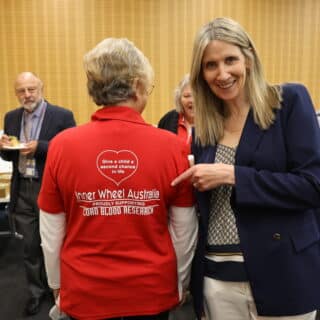
-
FGR damages the heart and lungs via the brainstem
Babies affected by Fetal Growth Restriction (FGR) have poor cardiorespiratory control; now Hudson Institute researchers have become the first to show persistent injury in the brainstem of growth restricted fetuses as the likely cause. … Read more
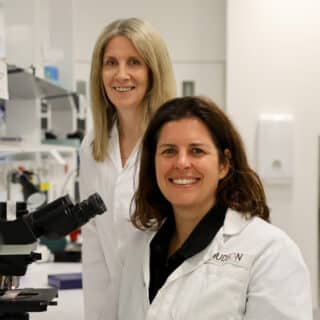
-
How diet before and during pregnancy affects your child
Every mother wants to have the healthiest child she can, and new research shows that the nutritional status of the mother during pregnancy can affect outcomes for the baby – with male and female offspring affected differently.… Read more
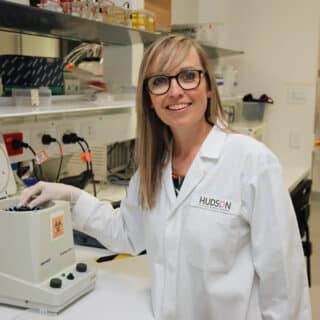
-
Growth restricted babies and asphyxia – cardiovascular impacts
The health effects of fetal growth restriction (FGR) can last a lifetime and the latest research from Hudson Institute is showing just how pervasive those effects can be on the cardiovascular system.… Read more
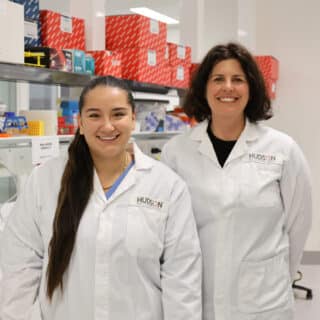
-
Cerebral palsy community consulted on stem cell treatment
Exploring the boundaries of stem cell therapy: Scientists consulted the cerebral palsy community to understand their perspectives.… Read more
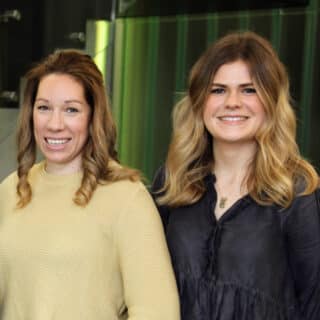
-
Hudson Institute fetal physiologist joins prestigious veski STEM program
Senior Research Scientist Dr Emily Camm has been named among the latest to join the veski inspiring women STEM sidebyside program – a leadership program empowering women in STEM with the skills, networks and mindset to extend and achieve their career aspirations.… Read more

-
PROTECT Me Trial | Ronick’s story
Professor Suzanne Miller and her team’s PROTECT Me Trial is providing hope to parents of our most vulnerable babies like Ronick.… Read more
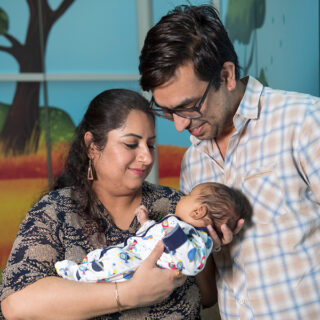
-
New hope for treating neonatal seizures
Trials of an anti-seizure drug in newborns are showing great promise, giving researchers new hope for treating neonatal seizures and preventing their devastating consequences.… Read more
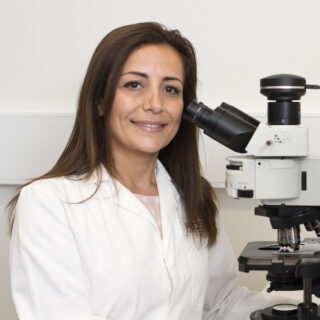
-
Finding and treating newborn brain injury
The long-term effects of newborn brain injuries are well known, so Professor Suzanne Miller’s dream is to be able to detect and treat those injuries in time to make a difference.… Read more

-
Cerebral palsy research awarded NHMRC Investigator Grant
Head of The Ritchie Centre, Professor Suzanne Miller, has been awarded more than $2.3 million to continue her groundbreaking work on targeted neuroprotective treatments for fetal and neonatal brain injury, primarily cerebral palsy… Read more
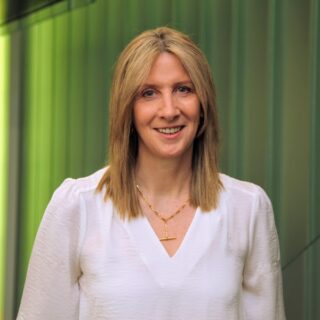
-
Philanthropy supports perinatal brain injury research
Dr Tayla Penny’s perinatal brain injury research has been awarded a significant early career research grant. Dr Penny’s investigation of umbilical cord blood (UCB) cell therapy for perinatal brain injury was recognised by the Jack Brockhoff Foundation as a worthy recipient of a $75,000 grant.… Read more
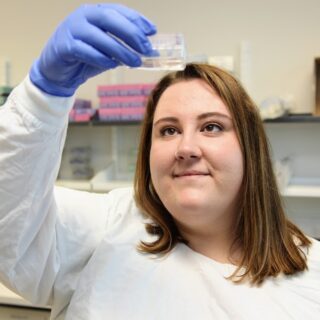
-
New Head for The Ritchie Centre
Professor Suzanne Miller, scientific leader in fetal and neonatal neurodevelopment, has been appointed as the new Head of The Ritchie Centre.… Read more

-
Preventing brain injury in babies
It’s always been accepted that the time of birth is a period of high risk, but new research shows that the developmental period in utero can be problematic for some babies, particularly those with low birth weight.… Read more
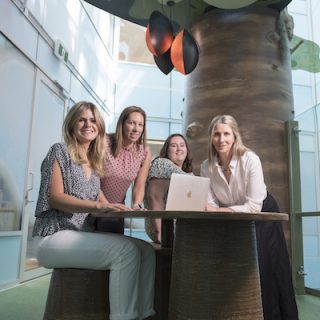
-
2022 Harold Mitchell Travel Fellowships
Congratulations to the 2022 recipients of the Harold Mitchell Travel Fellowships, to the Bryan Williams Traineeship Award, and Hudson Institute Travel Awards.… Read more

-
Obesity during pregnancy affects baby and placenta – but impacts vary depending on sex
and the function of the placenta, but new research also finds the impacts vary depending on the sex of the child.… Read more
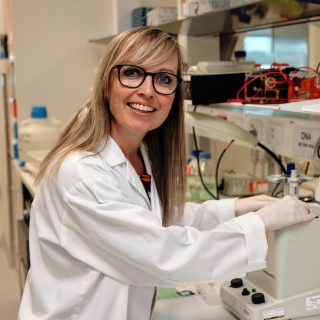
-
Australian Academy of Health and Medical Sciences (AAHMS) Associate Members
Two Hudson Institute researchers have been made Associate Members of Australia’s leading health and medical science advocacy body, the Australian Academy of Health and Medical Sciences (AAHMS).… Read more

-
Neural stem cells may hold key to tackling newborn brain injury
Neural Stem Cells have strong potential to be effective in reducing brain injury in newborn babies, in the most extensive review of research on the topic.… Read more
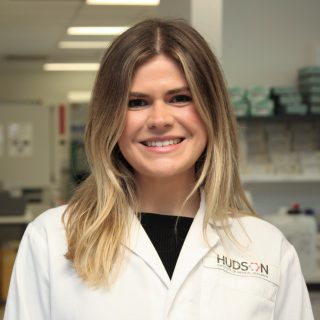
-
Brain injury at birth – a better start for newborns
Newborn babies who suffer asphyxia at birth could face significantly less risk of disability, thanks to a new treatment developed by Hudson Institute and Monash University scientists.… Read more

-
Cerebral Palsy | Meet the young Melbourne medical researchers making a difference
It’s the most common of all physical disabilities, affecting one in 500 Australians and more than 17 million people worldwide, but there is still so much to learn about Cerebral Palsy. … Read more
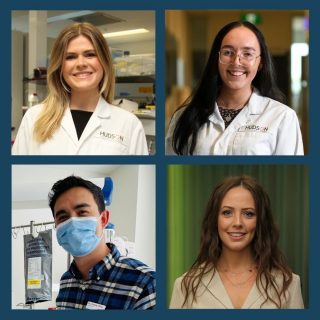
-
Congratulations 2021 SCS 3MT Competition final winners
Congratulations to our PhD students who presented their exceptional research at this year’s SCS Three Minute Thesis (3MT) competition final on Friday, 18 June.… Read more

-
Dr Emily Camm named STEM Ambassador, Science and Technology Australia
Dr Emily Camm named one of 17 STEM Ambassadors by Science and Technology Australia for 2021. … Read more

-
Protecting babies’ brain development in pregnancy
A new study in pre-clinical models has discovered a link between low oxygen in the womb and impaired memory function. It also finds that anti-oxidant supplements during pregnancy may protect against this.… Read more

-
Neonatal seizures research awarded Cerebral Palsy Alliance funding
Hudson Institute researchers will work with Monash University and Monash Health colleagues on an exciting new therapy for the treatment of neonatal seizures – following funding from the Cerebral Palsy Alliance.… Read more
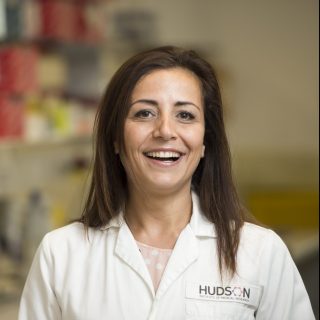
-
Protecting growth-restricted babies from brain injury with stem cell therapy
Hudson Institute scientists have demonstrated for the first time that umbilical cord stem cells can protect preterm, growth-restricted babies from brain injury.… Read more
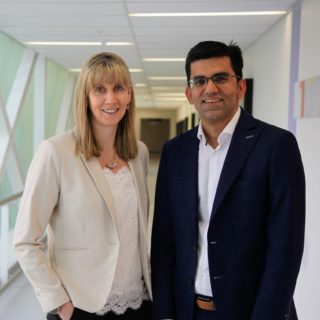
-
Stem cells help premature babies with lung disease
Hudson Institute and Monash University researchers have assessed the long-term outcomes of their world-first study that used placental stem cells in premature babies with severe bronchopulmonary dysplasia, a form of chronic lung disease.… Read more
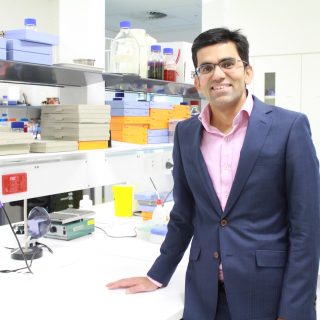
-
Celebrating 50 years of The Ritchie Centre
More than 100 scientists attended the 2019 Ritchie Centre Colloquium and Public Forum, where leading researchers and invited speakers presented ground-breaking research and celebrated The Ritchie Centre’s 50-year history.… Read more

-
An image of health: detecting brain damage in high risk babies
The impact of a serious pregnancy condition that affects millions of unborn babies globally could be minimised by improved imaging techniques.… Read more

-
Fetal growth restriction alters brain structure in the womb
For the first time Hudson Institute researchers have shown how fetal growth restriction (FGR), a condition which may impact brain development for up to one in 10 babies, gradually worsens during pregnancy. … Read more
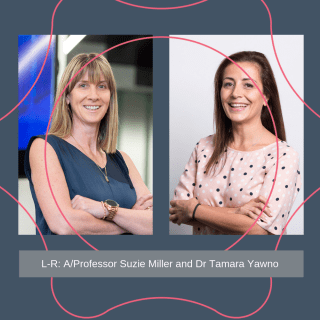
-
High accolades at PSANZ conference
Two Hudson Institute early career researchers and two PhD students were recognised for their outstanding research at the 21st Perinatal Society of Australia & New Zealand (PSANZ) conference at the Gold Coast.… Read more

-
NHMRC Project Grant success
Hudson Institute has had excellent success in the recent NHMRC and ARC Grant rounds.… Read more

-
Sleep hormone offers first treatment in 50 years for preeclampsia
A naturally occurring ‘sleep hormone’ could help prevent early delivery in pregnant women with the life-threatening complication, preeclampsia, a new study has found.… Read more

-
World-first trial of placental cell treatment helping premature babies
A world-first therapy, developed at Hudson Institute of Medical Research and Monash University, using cells from the human placenta to repair the damaged lungs of premature babies, is giving hope to families of the most fragile infants like Harry Campbell. The results of a clinical trial at the Monash Children’s Hospital – the culmination of… Read more
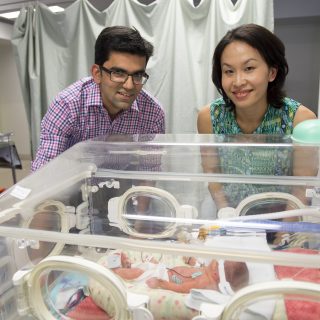
-
Simple ‘sleep hormone’ skin patch could protect at-risk newborns
A simple, cheap treatment of a skin patch containing a naturally occurring ‘sleep hormone’ could soon help to protect newborn babies from brain damage caused by oxygen deprivation at birth. A recent study, led by PhD student Dr James Aridas and Associate Professor Suzanne Miller in The Ritchie Centre, Hudson Institute of Medical Research, is… Read more
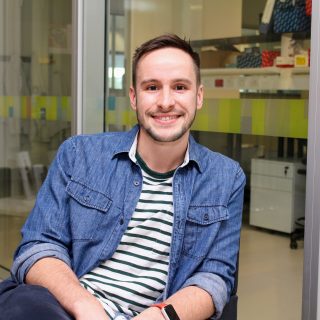
-
Stunning NHMRC Grant success
Hudson Institute has had outstanding success in the recent NHMRC Project Grant round. In addition, our researchers have been awarded an NHMRC Partnership Grant, an NHMRC Development Grant, an ARC Discovery Grant and three NMHRC Fellowships.… Read more
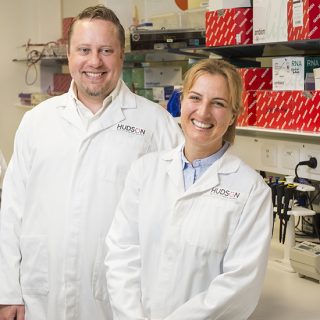
-
NHMRC Fellowship and Development Grant success
Hudson Institute researchers will work to prevent osteoporosis, protect unborn babies’ brains from damage and harness mitochondrial DNA to give women a better chance of pregnancy, thanks to almost $2 million in funding awarded by Australia’s leading medical research body. The National Health and Medical Research Council (NHMRC) last week announced funding for the research… Read more

-
New research shows placental stem cells could protect against preterm brain injury
The placenta is a rich source of life for unborn babies, supplying oxygen and sustaining nutrition to the fetus via the umbilical cord.… Read more

-
Hope for babies starved of oxygen at birth
Kahli Sargent loved going fast in a car or boat, everyone knew she loved it—which is surprising, because her mother was told by doctors at birth that she would never communicate.… Read more
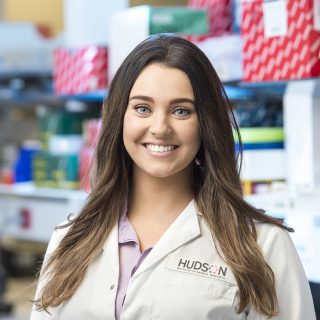
-
Hudson PhD student Dr James Aridas receives research scholarship
Hudson Institute/ Monash University School of Clinical Sciences PhD student, Dr James Aridas, has been awarded an Avant Mutual Group Doctors in Training research scholarship.… Read more
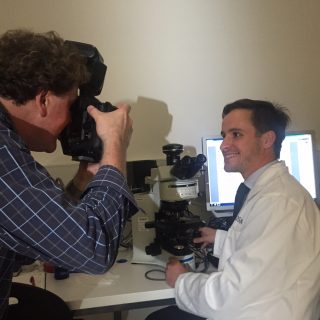
-
Congratulations Associate Professors Flora Wong and Suzie Miller
Two leading researchers within The Ritchie Centre at Hudson Institute are working to improve the health of newborn babies have been recognised with academic promotions at Monash University… Read more
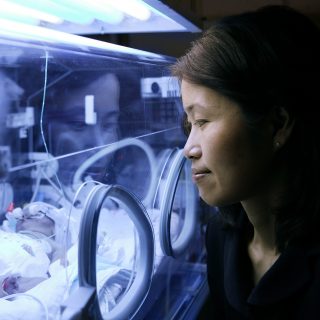
-
VCAL students raise funds for cord blood research
Year 12 students from Wangaratta in north-east Victoria have put their money where their mouth is, raising funds and awareness to support cord blood research at Hudson Institute.… Read more
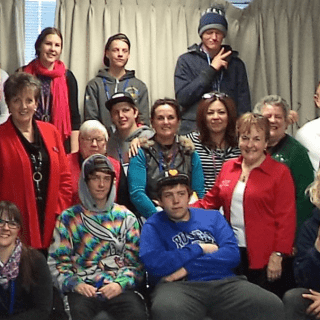
-
Clinical trial in India for hormone to help asphyxia babies
Professor Graham Jenkin and Monash Children’s Hospital Neonatologist, Dr Atul Malhotra recently travelled to Lucknow, India to help rollout training ahead of their global collaboration to reduce the incidence of birth asphyxia in low resource settings.… Read more

-
Inner Wheel ladies discover MIMR-PHI’s cutting edge cord blood research
Inner Wheel members keen to learn more about The Ritchie Centre’s cord blood research.… Read more
